There are lots of varieties of fishing equipment's in shops, numerous fishing methods in magazines, and fishing advice's online. To make it all simple, listed here are the fundamental items you need to learn for ones first time fishing adventure.
1) Tips on how to fish with bait
* Tackle. To plunk the bait, you ought to purchase lead weights. The duty in the lead would vary according to the current while using the environment. Anglers commonly use and recommend bank sinkers with a number-two hook.
 In order to avoid sinkers to slide, you must have a swivel to work as an end. To guard the knot, you can use plastic beads between swivel and weight. Using two appropriate swivels could enable you to rig the sliding sinkers.
In order to avoid sinkers to slide, you must have a swivel to work as an end. To guard the knot, you can use plastic beads between swivel and weight. Using two appropriate swivels could enable you to rig the sliding sinkers.
* Bait. The traditionally used bait for every individual kinds of fishes is worms. An added popular bait is chicken liver. Be sure to buy fresh bait and store them cold avoiding them from getting soft and allowing the bait to stay within your hooks.
Several of the widely used baits are cut-baits such as skin from fried chicken, fish entrails, grasshoppers, salmon eggs, shrimps and crayfish tails.
2) The best way to fish – You will find three basic options for fishing.
 * Plunking – It doesn't take most frequent method used. Start using a suitable higher level of weight so as to have the ability to snatch the bait capable that is against any current. An alternative in plunking is with minimal weight towards the bait to relocate while using the water current.
* Plunking – It doesn't take most frequent method used. Start using a suitable higher level of weight so as to have the ability to snatch the bait capable that is against any current. An alternative in plunking is with minimal weight towards the bait to relocate while using the water current.
* Back bouncing – It is done by lifting the bait your bottom and raising the finish while using rod for to 2 feet. Allowing the bait just to walk with the current, you ought to free the trunk reel or spool. Repeat the steps if the lure settles upon the lower. Back bouncing works well in deeper water like fishing inside a boat.
 * Drift-fishing – This is a simple method wherein you cast upstream or downstream. This will likely vary with respect to the current’s amount. It is best to count the best depth and initiate reeling.
* Drift-fishing – This is a simple method wherein you cast upstream or downstream. This will likely vary with respect to the current’s amount. It is best to count the best depth and initiate reeling.
3) Utilizing a ship – You should determine where location it is best to perform your fishing. Deeper water needs heavier jig-heads compared when fishing on shore.
* With heavy weight which will keep your bait nearby the bottom from your water combined with the line all the way up down from a boat, it is possible to drift the boat besides any current. An excellent means of fishing on boats is trolling slowly that has a fishing device called bottom-walker.
Fishing is not hard whenever you’re experiencing the trip. Bring quite a few of your friends and relations along to make your very first time fishing an appealing one.
Fishing is an excellent approach to take advantage of the outdoors, have some fun, and catch a tasty meal. Lots of people first learned to fish which has an experienced angler take them fishing. I'd been brought to the experience when my dad took my brothers and I trout fishing. Unfortunately not every individual that may love to try fishing knows someone who can show them basic principles. No matter what much help a fisherman was presented with everyone needed to originate from the start – when getting started.

The very first thing to consider is always that benefiting from gear together, finding a destination for a fish, as well as catching fish are common things you can accomplish all on your own. The basics of fishing are certainly not complicated. The nuances, alternatively, are endless. And sometimes the fish just do not bite. It appears everyone who has gone fishing a few times has ideas and advice to provide anyone which will listen. That may be Ok and referring to fishing may be just as much fun to be from the water. It doesn't matter what you choose to do or don't know about fishing when you are getting started, through experience you are able to become an efficient angler. You possibly can improve your skills with each fishing trip you practice, each part of new equipment you attempt, and any new knowledge you acquire.
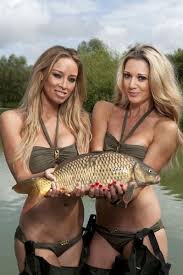
Fishing has many positives aspects to it. In some ways it can help suddenly you become more virtuous. E.g. patience is essential if you want to be a good angler. It will take considerable time to catch a fish plus some day you will not catch any whatsoever. All the same, fishing is usually time wisely spent. Being outdoors helps relieve stress and offers an excellent break on the grind of day-to-day life. Getting a recreational fishing trip is usually like a mini vacation - even if it is just a trip of a few hours. In my opinion, going fishing clears my mind and refreshes my spirit.
Another positive part of fishing is it's available to just about anyone. You could end up young or old, use fancy tailor made equipment or have inexpensive tackle you bought from fishing store, and use the shore or coming from a boat. When you have children, fishing generally is a fun family activity. Fishing with kids will also be challenging! On one hand your young ones can be impatient, and this can be a sport that's all about expecting the fish to bite. In contrast the experiences you'll be able to present to your children plus the thrill of seeing them catch fish could be well worth the effort you put with it.
Sport fishing is often a sort of recreational fishing the location where the primary reward would be the challenge of finding and catching the fish instead of the culinary or financial valuation on the fish's flesh. The distinction is not completely rigid - most of the time, sport fishers will also eat their catch. The philosophies and tactics used for sport fishing, however, are often sufficiently completely different from "food fishing" to create the excellence clear enough.
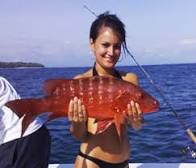 Sport fishing methods vary based on the area being fished, the species being targeted, the individual strategies of the angler, as well as the resources available, ranging from the aristocratic art of fly fishing, ostensibly invented in the UK, on the high-tech, incredibly expensive methods used to chase marlin and tuna. In virtually any case, however, the fishing is finished with hook, reel and rod in lieu of with nets or other aids.
Sport fishing methods vary based on the area being fished, the species being targeted, the individual strategies of the angler, as well as the resources available, ranging from the aristocratic art of fly fishing, ostensibly invented in the UK, on the high-tech, incredibly expensive methods used to chase marlin and tuna. In virtually any case, however, the fishing is finished with hook, reel and rod in lieu of with nets or other aids.
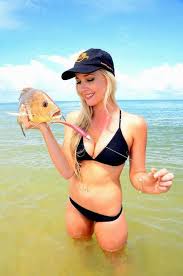 During the past, sport fishers, even if they didn't eat their catch, generally killed these to bring them to shore to become weighed or preservation as trophies. External pressure from conservationists, along with an authentic concern about fish stocks, have caused many sport fishers to begin with releasing their catch alive, sometimes after fitting all of them with identifying tags and recording their details so as to aid fisheries research (known as tag and release).
During the past, sport fishers, even if they didn't eat their catch, generally killed these to bring them to shore to become weighed or preservation as trophies. External pressure from conservationists, along with an authentic concern about fish stocks, have caused many sport fishers to begin with releasing their catch alive, sometimes after fitting all of them with identifying tags and recording their details so as to aid fisheries research (known as tag and release).
Sport fishing competitions give competitors (individuals when the fishing is carried out in land, usually teams where conducted from boats) a nominated time and area from where they may be to trap fish. Scores are awarded for every fish caught, the points according to the fish's weight and species, then, sometimes, divided from the strength in the fishing line used (so catching fish on thinner, weaker line scores additional points). In tag and release competitions, a designated score per fish, divided because of the line strength, is awarded per species caught.
Recreational fishing, also referred to as sport fishing, is fishing for pleasure or competition. It could be contrasted with commercial fishing, which is fishing to make money, or subsistence fishing, which is fishing for survival.
The commonest form of recreational fishing is completed which has a rod, reel, line, hooks and any of your lots of baits. Other devices, typically called terminal tackle, are accustomed to affect or complement the presentation on the bait for the targeted fish. Some situations of terminal tackle include weights, floats, and swivels. Lures are generally used in host to bait. Some hobbyists make handmade tackle themselves, including plastic lures and artificial flies. The practice of catching or seeking to catch fish having a hook is known as angling.


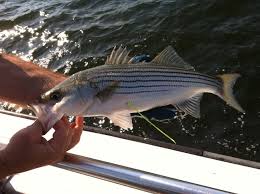 Big-game fishing is conducted from boats to trap large open-water species including tuna, sharks and marlin. Noodling and trout tickling may also be recreational use. Strategy of growing popularity is kayak fishing. Kayaks are stealthy and enable anglers to realize areas not fish-able from land or by conventional boat. Also, fishing from kayaks is viewed by some as an effort to level the digital camera playing field, to your degree, using quarry and/or even challenge their angling abilities further by bringing an additional amount of complexity on their sport. Historically, sport fishing has attracted greater interest among males. Females and girls represent barely 10% from the angling community, yet individuals who do go into the sport are sometimes extremely successful, including the highest level of competitive angling, their results are comparable to those of their male counterparts.
Big-game fishing is conducted from boats to trap large open-water species including tuna, sharks and marlin. Noodling and trout tickling may also be recreational use. Strategy of growing popularity is kayak fishing. Kayaks are stealthy and enable anglers to realize areas not fish-able from land or by conventional boat. Also, fishing from kayaks is viewed by some as an effort to level the digital camera playing field, to your degree, using quarry and/or even challenge their angling abilities further by bringing an additional amount of complexity on their sport. Historically, sport fishing has attracted greater interest among males. Females and girls represent barely 10% from the angling community, yet individuals who do go into the sport are sometimes extremely successful, including the highest level of competitive angling, their results are comparable to those of their male counterparts.
Sport fishing methods vary good area fished, the species targeted, the private strategies of the angler, as well as the resources available. It ranges on the aristocratic art of fly fishing elaborated in Great Britain, for the high-tech methods used to chase marlin and tuna. Sport fishing is normally finished with hook, line, reel and rod instead of with nets or other aids. The most frequent brine game fish are marlin, tuna, tarpon, sailfish, shark, and mackerel.
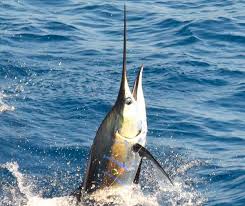 In America, freshwater fish include snook, redfish, salmon, trout, bass, pike, catfish, walleye and muskellunge. The littlest fish are called panfish, simply because can fit whole within a normal cooking pan. Examples are perch and sunfish.
In America, freshwater fish include snook, redfish, salmon, trout, bass, pike, catfish, walleye and muskellunge. The littlest fish are called panfish, simply because can fit whole within a normal cooking pan. Examples are perch and sunfish.
During the past, sport fishers, whether or not they did not eat their catch, usually killed these phones bring the crooks to shore to get weighed and preservation as trophies. To be able to protect recreational fisheries sport fishermen now often catch and release, and sometimes tag and release, that involves fitting the fish with identity tags, recording vital statistics, and sending accurate documentation to your federal agency. Recreational fishing techniques include hand gathering, spearfishing, netting, angling and trapping.
Most recreational fishers use a fly fishing rod which has a fishing line along with a hook right at the end from the line. The rod could be pre-loaded with a reel to ensure the line could be reeled in, and some sort of bait or even a lure connected to the hook. Fly fishing is often a special form of rod fishing the location where the reel is connected to the rear on the rod, and heavy lines are cast with a complex, repetitive whipping motion to provide the ultralight artificial fly to its target. Another less common strategy is bow-fishing by using a regular bow or maybe a crossbow. The "arrow" is usually a modified bolt with barbs at the tip, attached to a fishing line therefore the fish might be retrieved. Some crossbows are fitted that has a reel.
The effective using fishing techniques often is determined by know-how about the fish and their behavior including migration, foraging and habitat.
Fishing tackle is a general term that refers back to the equipment employed by fishers. Just about any equipment or gear for fishing might be called fishing tackle. Some situations are hooks, lines, sinkers, floats, rods, reels, baits, lures, spears, nets, gaffs, traps, waders and tackle boxes.
Tackle that may be attached to the end of any fishing lines are called terminal tackle. Including hooks, sinkers, floats, leaders, swivels, split rings and wire, snaps, beads, spoons, blades, spinners and clevises to connect spinner blades to fishing lures.
Fishing rig might be contrasted with fishing techniques. Fishing rig refers to the physical equipment that is used when fishing, whereas fishing techniques refers back to the ways the tackle is employed when fishing.
Recreational fishing has conventions, rules, licensing restrictions and laws that limit the way fish could be caught. The International Sport fish Association (IGFA) makes and oversees a couple of voluntary guidelines. Typically, these prohibit the use of nets plus the catching of fish with hooks not in the mouth. Enforceable regulations are applied by governments to be sure sustainable practice amongst anglers. E.g. within the Republic of Ireland, the Central Fisheries Board oversees the implementation coming from all angling regulations, such as controls on angling lures, baits and number of hooks permissible, along with licensing requirements as well as other conservation-based restrictions. Regulations notwithstanding, voluntary catch and release fishing as a way of protecting and sustaining game species happens to be an increasingly common practice among conservation-minded recreational anglers